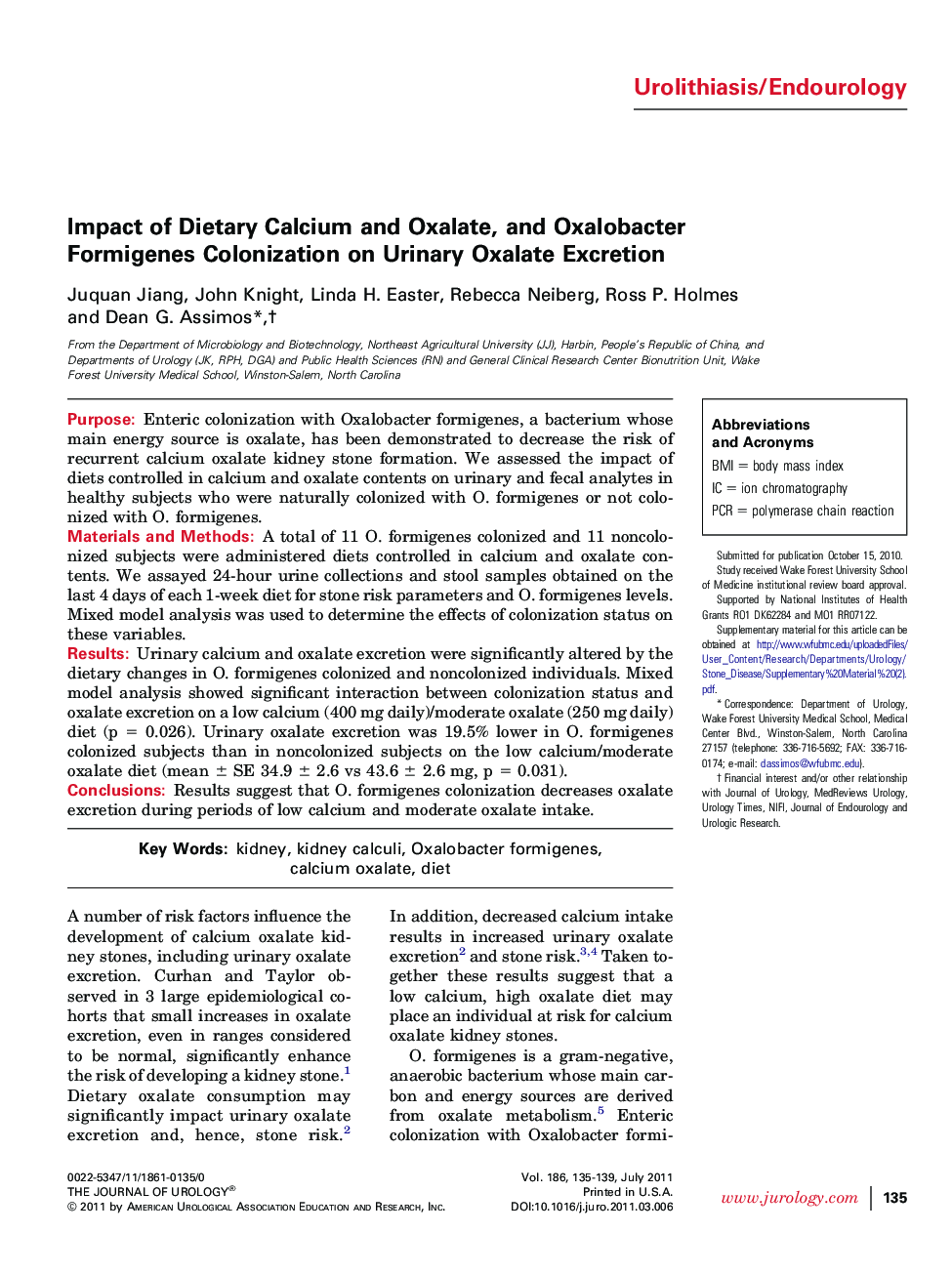| Article ID | Journal | Published Year | Pages | File Type |
|---|---|---|---|---|
| 3865763 | The Journal of Urology | 2011 | 5 Pages |
PurposeEnteric colonization with Oxalobacter formigenes, a bacterium whose main energy source is oxalate, has been demonstrated to decrease the risk of recurrent calcium oxalate kidney stone formation. We assessed the impact of diets controlled in calcium and oxalate contents on urinary and fecal analytes in healthy subjects who were naturally colonized with O. formigenes or not colonized with O. formigenes.Materials and MethodsA total of 11 O. formigenes colonized and 11 noncolonized subjects were administered diets controlled in calcium and oxalate contents. We assayed 24-hour urine collections and stool samples obtained on the last 4 days of each 1-week diet for stone risk parameters and O. formigenes levels. Mixed model analysis was used to determine the effects of colonization status on these variables.ResultsUrinary calcium and oxalate excretion were significantly altered by the dietary changes in O. formigenes colonized and noncolonized individuals. Mixed model analysis showed significant interaction between colonization status and oxalate excretion on a low calcium (400 mg daily)/moderate oxalate (250 mg daily) diet (p = 0.026). Urinary oxalate excretion was 19.5% lower in O. formigenes colonized subjects than in noncolonized subjects on the low calcium/moderate oxalate diet (mean ± SE 34.9 ± 2.6 vs 43.6 ± 2.6 mg, p = 0.031).ConclusionsResults suggest that O. formigenes colonization decreases oxalate excretion during periods of low calcium and moderate oxalate intake.
